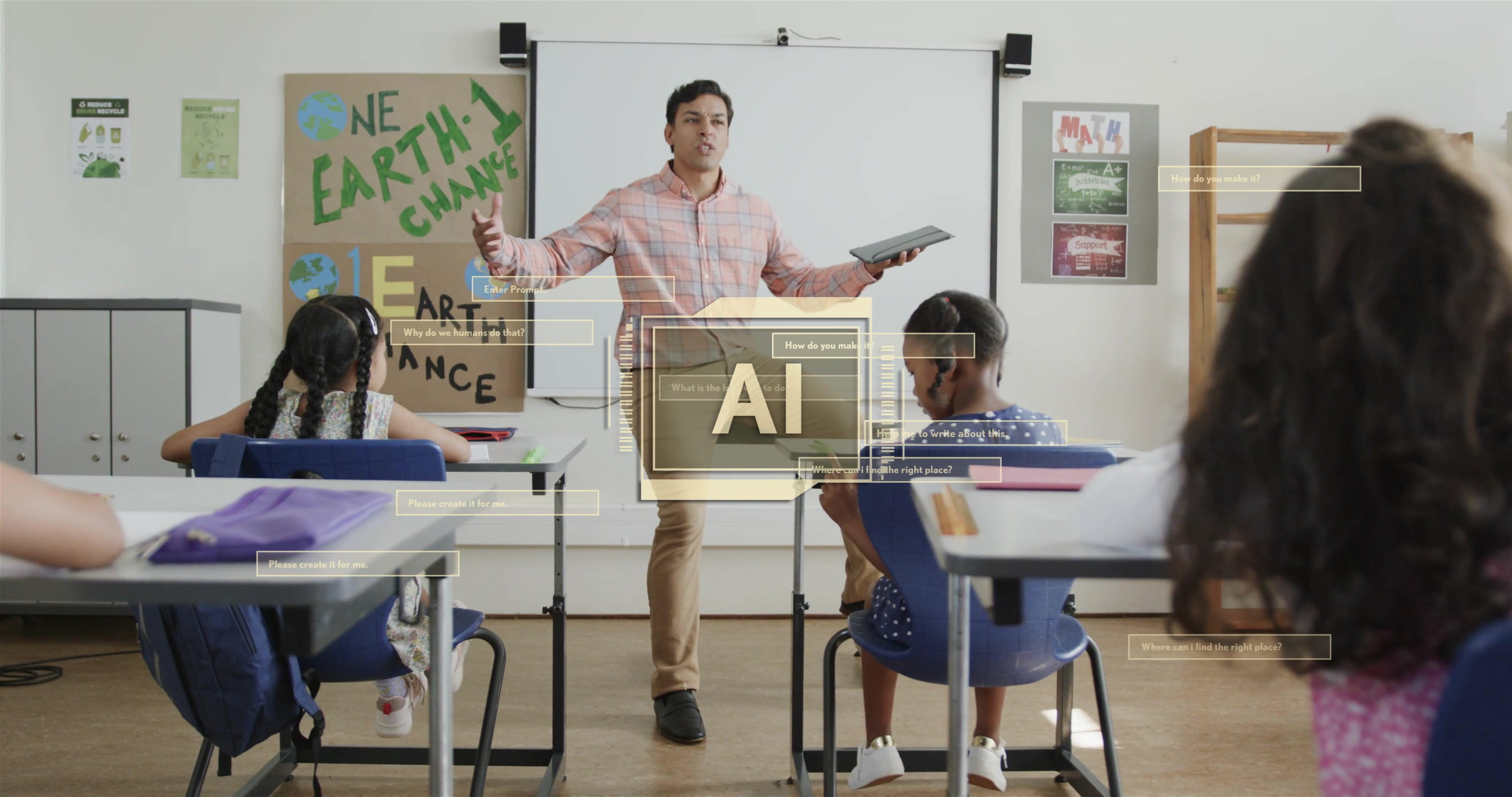
Generative AI tools like ChatGPT significantly enhance students' higher-order thinking skills with large positive effects, contradicting concerns about potential cognitive harm.
Generative AI tools like ChatGPT significantly enhance students' higher-order thinking skills with large positive effects contradicting concerns about potential cognitive harm Objective The main goal of this study was to... continue

K-12 teachers worldwide experience varying levels of "cultural distance" when using GenAI tools, ranging from seamless alignment in communication tasks to complete breakdown when local languages and cultural contexts are absent from training data, reveali
K- teachers worldwide experience varying levels of cultural distance when using GenAI tools ranging from seamless alignment in communication tasks to complete breakdown when local languages and cultural contexts are... continue

K-12 teachers worldwide actively use GenAI education as a double-edged tool to reduce existing educational inequalities while preventing new ones, but their equality-oriented efforts are consistently constrained by infrastructural gaps, insufficient train
K- teachers worldwide actively use GenAI education as a double-edged tool to reduce existing educational inequalities while preventing new ones but their equality-oriented efforts are consistently constrained by infrastructural gaps... continue

Female secondary school students consistently demonstrate lower AI learning attitudes, literacy, and career interest than males, but AI literacy serves as the crucial bridge connecting positive learning attitudes to career aspirations regardless of gender
Female secondary school students consistently demonstrate lower AI learning attitudes literacy and career interest than males but AI literacy serves as the crucial bridge connecting positive learning attitudes to career... continue

GenAI is transforming K-12 classrooms by creating a new collaborative division of labor where teachers evolve from knowledge transmitters to instructional decision-makers and ethical guides while AI handles routine tasks.
GenAI is transforming K- classrooms by creating a new collaborative division of labor where teachers evolve from knowledge transmitters to instructional decision-makers and ethical guides while AI handles routine tasks... continue

Secondary school students' conceptions of learning AI range from basic awareness and knowledge acquisition to sophisticated views involving ethical considerations and transformative intellectual development, with most students demonstrating positive attit
Secondary school students' conceptions of learning AI range from basic awareness and knowledge acquisition to sophisticated views involving ethical considerations and transformative intellectual development with most students demonstrating positive attitudes... continue

Using AI-driven adaptive learning platforms in elementary education significantly improves both student academic performance and engagement levels across K-5 classrooms.
Using AI-driven adaptive learning platforms in elementary education significantly improves both student academic performance and engagement levels across K- classrooms Objective The main goal of this study was to investigate... continue

AI technologies in educational big data analytics demonstrate high predictive accuracy and effectiveness in personalizing learning, but face significant technical, institutional, and ethical barriers that limit widespread implementation.
AI technologies in educational big data analytics demonstrate high predictive accuracy and effectiveness in personalizing learning but face significant technical institutional and ethical barriers that limit widespread implementation Objective The... continue

This collection demonstrates that AI in education requires careful human-centered implementation that preserves authentic learning experiences while leveraging technology's potential to enhance rather than replace meaningful teaching and learning.
This collection demonstrates that AI in education requires careful human-centered implementation that preserves authentic learning experiences while leveraging technology's potential to enhance rather than replace meaningful teaching and learning Objective... continue

This paper argues that prompt engineering should be established as a foundational 21st-century literacy in K-12 education, with students learning to critically and creatively interact with AI tools through structured curriculum design and comprehensive as
This paper argues that prompt engineering should be established as a foundational st-century literacy in K- education with students learning to critically and creatively interact with AI tools through structured... continue

Elementary students using a reflection-enhanced generative AI system significantly outperformed their peers in both science learning achievement and computational thinking skills development.
Elementary students using a reflection-enhanced generative AI system significantly outperformed their peers in both science learning achievement and computational thinking skills development Objective This study aimed to investigate the effectiveness... continue

AI-driven virtual reality shows significant promise for enhancing STEM identity and social-emotional skills development in K-12 students through immersive, personalized learning experiences and safe practice environments.
AI-driven virtual reality shows significant promise for enhancing STEM identity and social-emotional skills development in K- students through immersive personalized learning experiences and safe practice environments Objective The main goal... continue